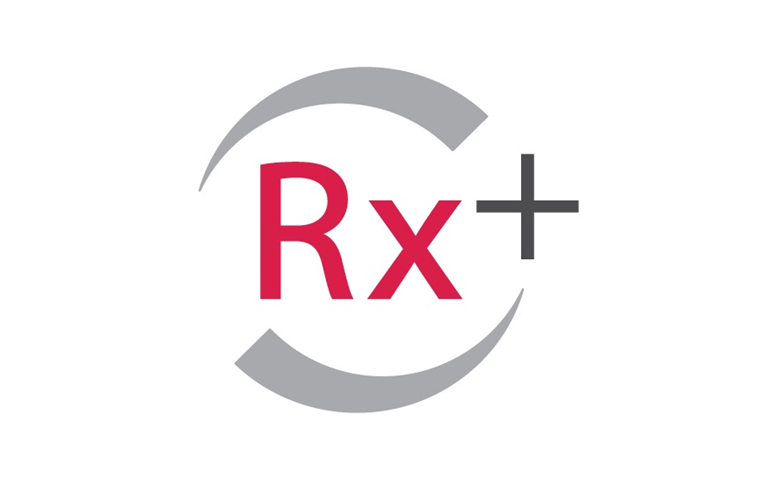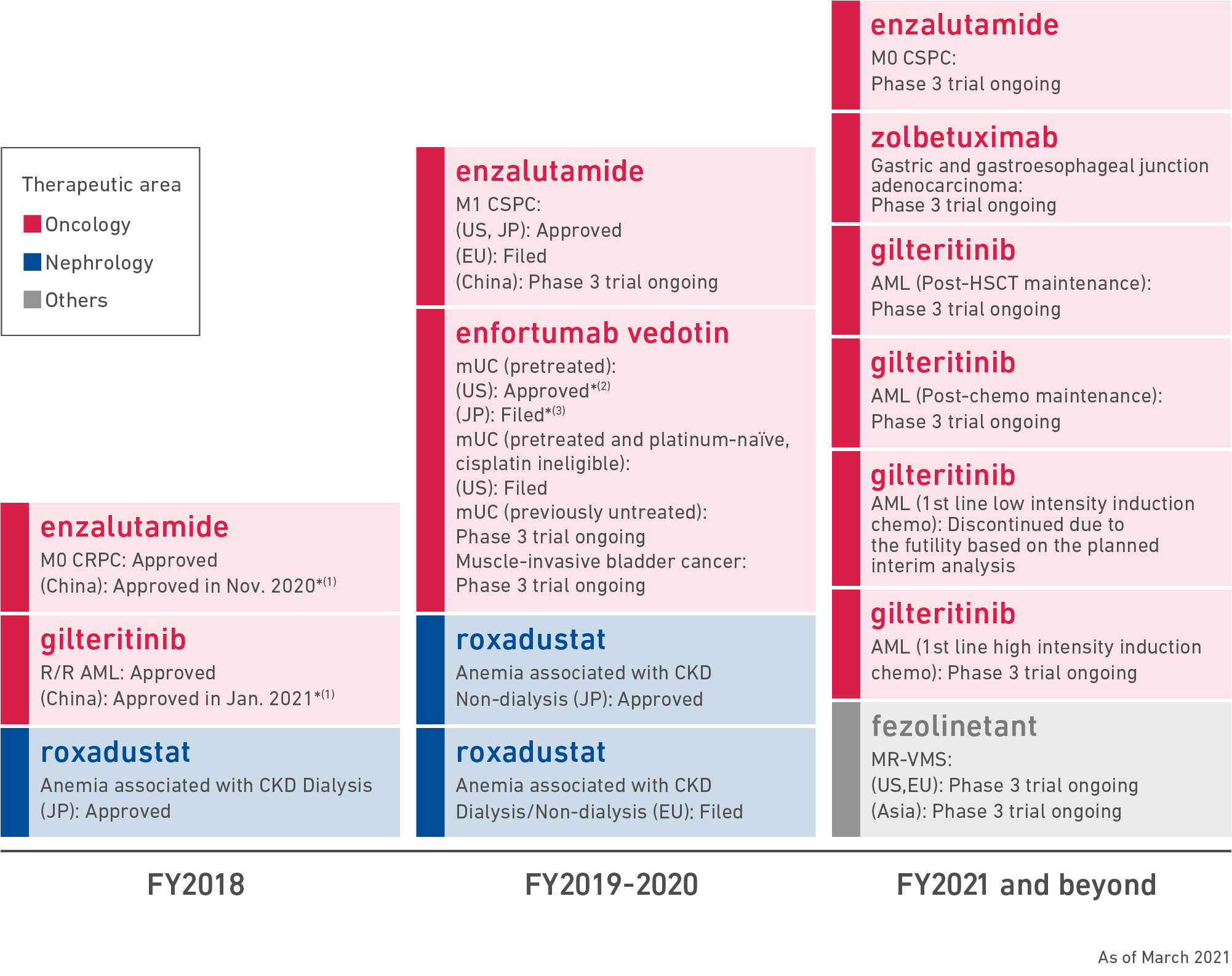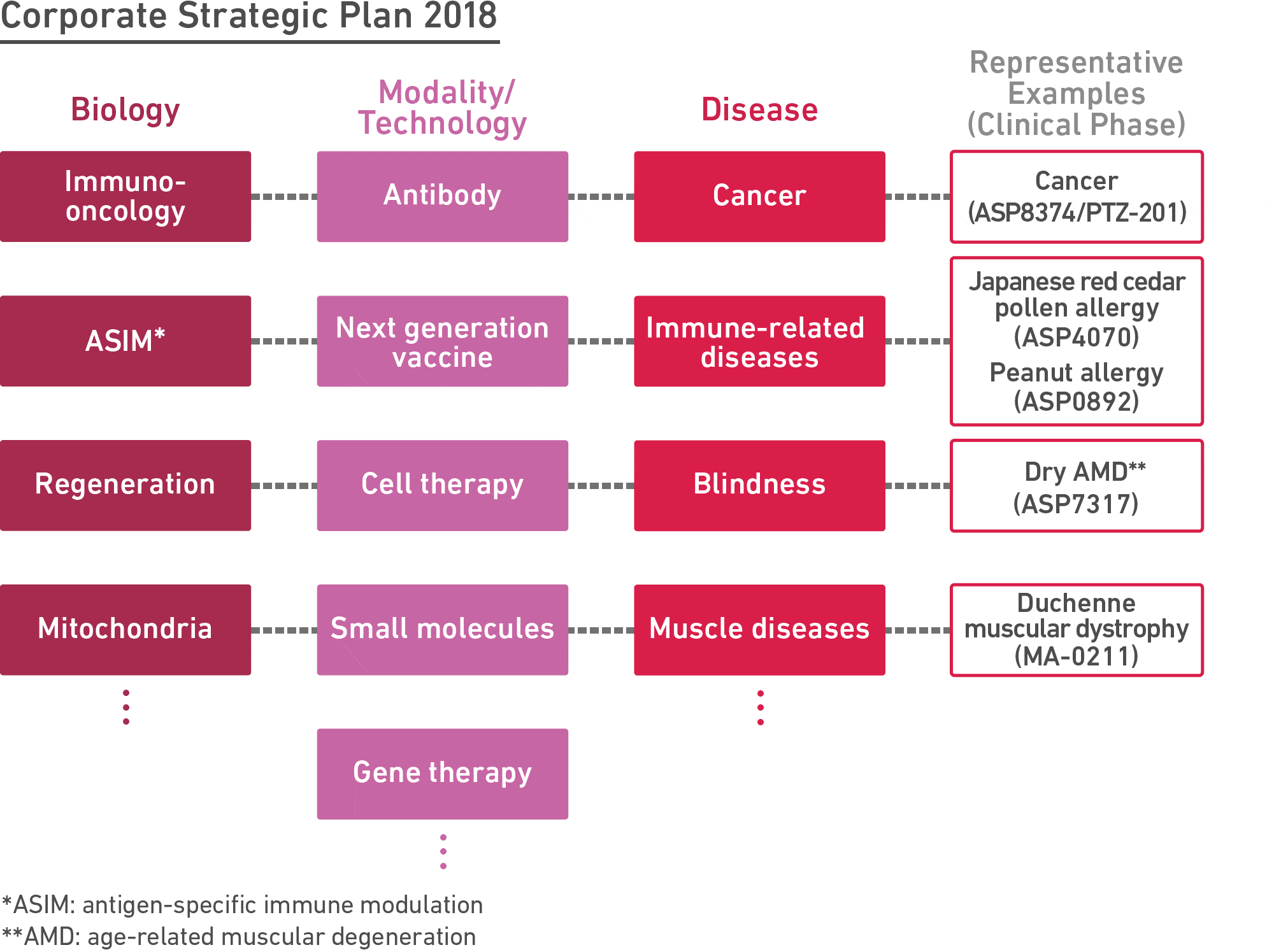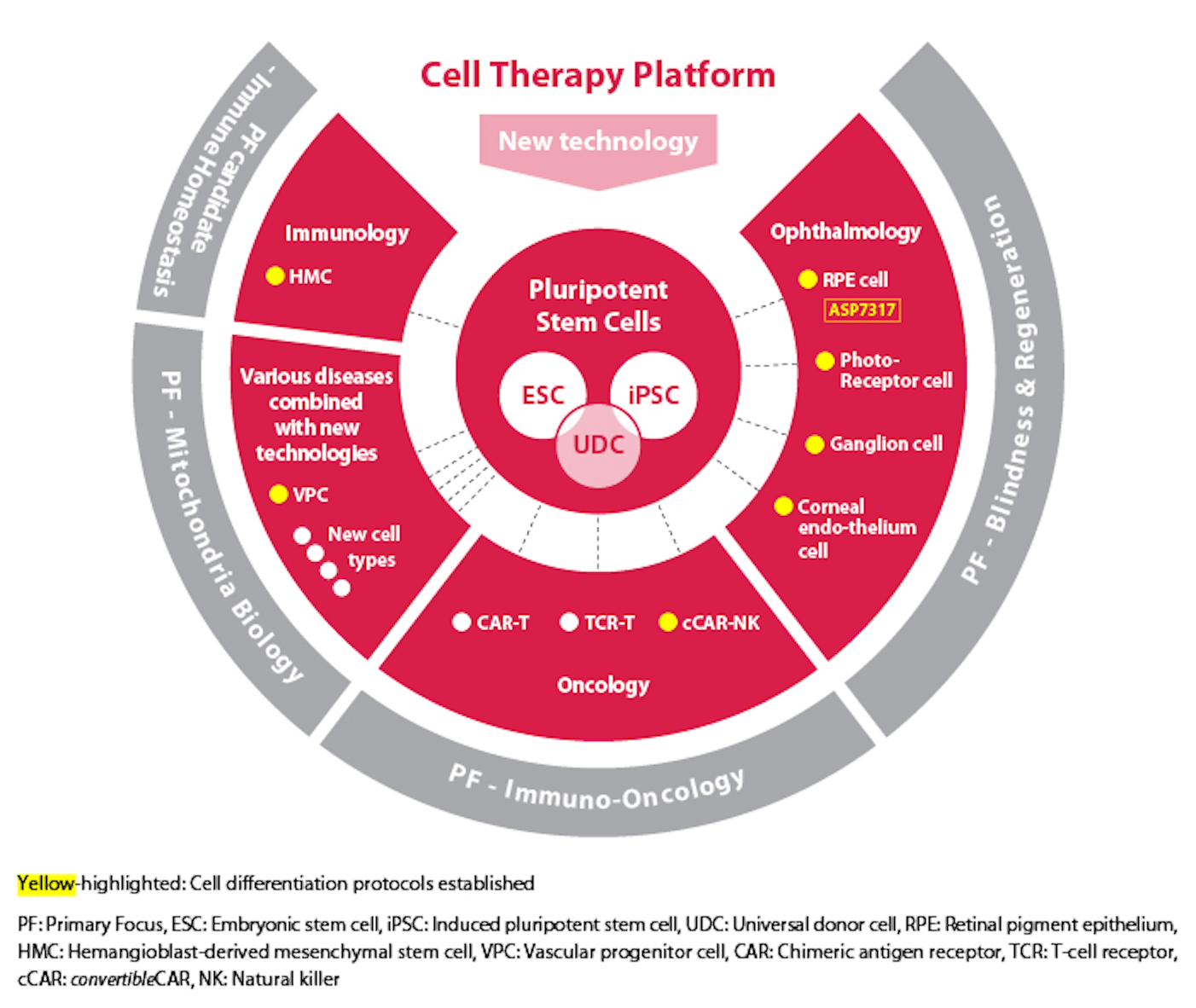Building a foundation to create innovative treatments under the Corporate Strategic Plan 2018

“On the forefront of healthcare change to turn innovative science into VALUE for patients.” We aim to become a Breakthrough Science Developer to realize our VISION.
A Breakthrough Science Developer is a company that creates new value for patients by exploring promising scientific technologies and platforms and applying them to various diseases and treatment areas.
We have set three strategic goals in the Corporate Strategic Plan 2018 (CSP2018, covering FY 2018 to FY 2020) and have been actively implementing them. Kenji Yasukawa, Ph.D., President and CEO* says, "the CSP2018 laid the groundwork for the creation of innovative drugs that will underpin Astellas' foundation from the mid-2020s onward."
The progress of the three strategic goals of the CSP2018 is described below.
*Current Representative Director, Chairman of the Board
Strategic Goal 1: Maximizing Product VALUE and Operational Excellence
Yasukawa told us, “For the past three years, we have worked to make steady progress toward our milestones for six key post-POC pipeline: enzalutamide, gilteritinib, enfortumab vedotin, zolbetuximab, roxadustat, fezolinetant.”
The update of filing opportunities in the CSP 2018 (current situation and future plan)
M0: Non-metastatic, M1: Metastatic, CPRC: Castration-resistant prostate cancer, CSPC: Castration-sensitive prostate cancer, R/R: Relapsed or refractory, AML: Acute myeloid leukemia, HSCT: Hematopoietic stem cell transplantation, CKD: Chronic kidney disease, mUC: Metastatic urothelial cancer, MR-VMS: Menopause related vasomotor symptoms
*(1) The results we didn’t plan when CSP 2018 was announced.
*(2) Indication: locally advanced or metastatic urothelial cancer who have previously received a PD-1/L1 inhibitor and a platinum-containing chemotherapy before (neoadjuvant) or after (adjuvant) surgery or in a locally advanced or metastatic setting
*(3) Indication: locally advanced or metastatic urothelial cancer that has progressed after anti-cancer medication
The progress of each key post-POC pipeline is as follows:
enzalutamide (brand name: XTANDI®)
Prostate cancer is the second most common cancer among men and about 1.4 million new cases are diagnosed annually worldwide*1. Astellas marketed enzalutamide worldwide for the treatment for prostate cancer.
As of May 2018, when the CSP2018 was announced, the approved indication for enzalutamide was metastatic castration-resistant prostate cancer (M1 CRPC, the indication in Japan was castration-resistant prostate cancer). We have been developing the drug for the past three years with Pfizer Inc. with the aims of expanding its approval for an earlier indication for prostate cancer and its commercial areas.
As a result, we received an additional indication of non-metastatic castration-resistant prostate cancer (M0 CRPC) in the U.S in July 2018, and in Europe in October 2018. As for an additional indication of metastatic castration-sensitive prostate cancer (M1 CSPC), we received approval in the U.S in December 2019, and in Japan in May 2020. In Europe, a drug application was filed in July 2019 for the treatment of patients with M1 CSPC and is now under review. In China, we also received approval for the additional indication of metastatic castration-resistant prostate cancer (M1 CRPC) in November 2019, which we have marketed since March 2020. The additional indication of M0 CRPC was also approved in November 2020 in China. Astellas is working to further expand the indication globally.
*1 World Health Organization Globocan 2020
gilteritinib (brand name: XOSPATA®)
Acute myeloid leukemia (AML) is a cancer that affects many elderly people and increases in number with age. Approximately 5,500*2 in Japan, 19,000*3 in the US, and 18,400*4 in Europe are diagnosed with AML. AML is a life-threatening disease that must be treated as soon as possible.
When the CSP2018 was announced, a new drug application of gilteritinib for the treatment of adult patients with FLT3 mutation-positive (FLT3mut+) relapsed or refractory AML had been filed in Japan and the U.S. and was under review. Gilteritinib was approved in Japan in September 2018, in the U.S. in November 2018, and in Europe in October 2019, and marketed in each region. In China, it was granted conditional approval for the treatment of adult patients who have relapsed or refractory AML with a FLT3mut+ detected by a fully validated test in January 2021. We are conducting multiple clinical trials aiming to expand indications for AML at an earlier stage.
*2 KantarHealth. TREATMENT ARCHITECTURE: JAPAN LEUKEMIA, ACUTE MYELOID. CancerMPact® Japan, February 2017
*3 American Cancer Society. Key Statistics for Acute Myeloid Leukemia (01-04-2018)
*4 Visser O, et al., 2012
enfortumab vedotin (brand name: PADCEV®)
Urothelial cancer accounts for 90% of bladder cancers. About 570,000 people are diagnosed with bladder cancer each year globally, and about 210,000 people die*5. Astellas develops enfortumab vedotin with Seagen Inc. and marketed it in the U.S. for the treatment for locally advanced or metastatic urothelial cancer.
When the CSP2018 was announced, Phase 2 trials*6 were ongoing, and based on its results, the U.S. Food and Drug Administration (FDA) granted accelerated approval*7 in December 2019 and marketed in the same month. In addition, two supplemental Biologics License Applications (sBLAs)*8 were submitted in the U.S. in February 2021. One submission sought to convert PADCEV’s accelerated approval to regular approval. The second submission requested an expansion of the current label*9. In Japan, a new drug application for the treatment of patients with locally advanced or metastatic urothelial cancer that has progressed after anti-cancer medication was submitted in March 2021. We are also preparing for clinical trials in China and aim to expand its market. Furthermore, we are also conducting clinical trials for an earlier stage, previously untreated metastatic urothelial cancer and muscle-invasive bladder cancer globally.
*5 World Health Organization Globocan 2020
*6 Phase 1/2/3 trials: Clinical trials are usually conducted in three stages, from Phase 1 to Phase 3. Phase 1 is for healthy adults who volunteered, Phase 2 is for few patients whose condition is relatively mild, and Phase 3 is for patients who are expected to use the drug after its launch.
*7 Indication of the accelerated approval in the U.S. in December 2019: locally advanced or metastatic urothelial cancer who have previously received a PD-1/L1 inhibitor and a platinum-containing chemotherapy before (neoadjuvant) or after (adjuvant) surgery or in a locally advanced or metastatic setting
*8 supplemental Biologics License Application (sBLA): the supplemental biologics license application to be submitted to the FDA
*9 Indication of the sBLA for an expansion of the current label, submitted in February 2021: locally advanced or metastatic urothelial cancer who have been previously treated with a PD-1/L1 inhibitor and are ineligible for cisplatin
zolbetuximab
Stomach cancer is the third most common cause of cancer death worldwide*10. In addition, the five-year survival rate for metastatic gastric adenocarcinoma and esophagogastric junction adenocarcinoma is less than 20%*11.
When the CSP2018 was announced, zolbetuximab was in Phase 3 trials for gastric and gastroesophageal junction adenocarcinoma. As of March 2021, three years after the announcement of the CSP, in addition to the above Phase 3 trials, Phase 2 trials for pancreatic adenocarcinoma is also ongoing. Pancreatic cancer is the seventh leading cause of cancer death*10 and its five-year survival rate is 4%*12.
*10 World Health Organization Globocan 2020
*11 Pennathur A, et al., 2013; Sahin et al., 2008
*12 Ilic M, et al., 2016
roxadustat (brand name: Evrenzo®)
Anemia is a common complication in patients with chronic kidney disease (CKD), and a high prevalence and increased risk of death has been observed in both dialysis and not on dialysis (before dialysis) patients*13. Astellas and FibroGen, Inc. are collaborating on the development of roxadustat for the potential treatment of anemia associated with CKD on dialysis and not on dialysis, in areas including Japan, Europe, the Commonwealth of Independent States, the Middle East, and South Africa.
When the CSP2018 was announced, roxadustat was in Phase 3 trials for anemia associated with CKD on dialysis and not on dialysis. After that, in Japan, a new drug application for the treatment of renal anemia in patients on dialysis was approved in September 2019, and the product was launched in November 2019. We also received approval for the additional indication for the patients not on dialysis in November 2020. In Europe, an application was filed in April 2020 for the treatment of anemia associated with CKD, and the review process is progressing smoothly.
*13 Stauffer ME, et al. 2014
fezolinetant
Vasomotor symptoms (VMS) are the most common symptoms associated with menopause, affecting more than 50 percent of women 40 to 64 years of age*14,15. If approved by regulatory authorities, fezolinetant would be a first-in-class, nonhormonal treatment option to reduce the frequency and severity of VMS associated with menopause.
When the CSP2018 was announced, fezolinetant was in Phase 2 trials for VMS in postmenopausal women. Since August 2019, three Phase 3 trials have launched in the US and Europe, and two Phase 3 clinical trials have shown positive topline results. In Asia, Phase 3 trials are ongoing since April 2020.
*14 Utian WH. Psychosocial and socioeconomic burden of vasomotor symptoms in menopause: a comprehensive review. Health Qual Life Outcomes 2005; 3: 47
*15 Woods, NF, Mitchell ES. Symptoms during the perimenopause: prevalence, severity, trajectory, and significance in women’s lives. Am J Med. 2005;118(suppl 12B):14-24
Strategic Goal 2: Evolving How We Create VALUE with Focus Area Approach
Until the mid-2010s, Astellas, through the Global Category Leader model, established a competitive edge by delivering innovative drugs in the fields of urology, oncology, and transplantation, all of which are specific diseases and treatments. However, Astellas is currently taking a new approach that focuses on drug discovery targets from a multifaceted perspective, breaking away from the traditional exit strategy of focusing on targeted diseases and developing drugs. This is our Focus Area approach.
The Focus Area approach defines a Focus Area as a set of combinations of three components: (1) biology that is highly pathogenesis-related, (2) versatile modalities and technologies*16, (3) diseases with high unmet medical needs with solutions that are expected from these two elements of biology and modality/technology.
Yasukawa explains, "Once this triangle of biology, modality/technology, and disease is formed, it's no longer just a one-off project; it becomes a continuous stream of new drugs."
When multiple new drug candidates are generated and the lead compound advances to the clinical stage, we designate them as the Primary Focus, an area in which management resources are given the highest priority within the company.
As of 2018, this approach was still in the exploration phase. However, five have been identified as Primary Focus, one of which has multiple programs having gone into the clinical phase and completed drug discovery research. Currently, we define "Blindness & Regeneration," "Mitochondria Biology," "Genetic Regulation," and "Immuno-Oncology" as four Primary Focuses, and each of which has built up a solid track record.
Astellas is working to refine its core capabilities, which provide one source of its competitive advantage, while exploring opportunities for alliances and partnerships that actively incorporate a variety of outstanding external capabilities. The acquisitions of Nanna, Audentes, Xyphos, Potenza, Quethera, Universal Cells, and Mitobridge are part of such an effort.
*16 modalities and technologies: treatment options and techniques to realize therapeutic concepts including small molecule, antibody, gene therapy, and cell therapy
An overview of each Primary Focus and its progress is as follows:

Primary Focus Blindness & Regeneration
Our mission for Primary Focus Blindness & Regeneration is to free patients from the fear of vision loss and offer the hope of recovery of lost sight. By taking advantage of next-generation modalities such as cell therapy and gene therapy for patients with back of the eye diseases at high risk of blindness, we will provide new treatment options to restore and maintain vision. Cell therapy and gene therapy will enable us to meet unmet medical needs that were difficult to meet with existing therapeutic approaches. It has the promise of delivering safe, effective, and sustainable options for patients who previously have not had any treatment options.
Regarding the program in cell therapy for geographic atrophy secondary to age-related macular degeneration, ASP7317, Phase 1 trials are ongoing. Unlike low-molecular-weight compounds, cells used in regenerative medicine generally require advanced quality control in production and distribution. Astellas has already conducted clinical trials using cells which meet commercial standards and established the cell therapy manufacturing process including early commercial production.
To ensure a stable supply of high-quality cell therapy products, we established a new plant with seven cleanrooms in suburban Boston and have operated it since October 2020. This facility makes it possible to conduct activities from research to early commercial production.
To learn more about this Primary Focus, click here.

Primary Focus Mitochondria Biology
Our target, the mitochondrion, is remarkably complex. While it is primarily thought of as an energy supplying organelle, it also has multifaceted functions and is controlled by multiple biological pathways. In fact, mitochondria play an important role in the aging process with many clinical and preclinical evidence, and mitochondrial dysfunction causes and/or aggravates a wide variety of diseases.
The Peroxisome Proliferator-Activated Receptor delta (PPARδ) modulator, ASP0367, was jointly developed with Mitobridge, which was acquired in 2018, and was designated as Fast Track*17 by the FDA for its development as a treatment for primary mitochondrial myopathy. Phase 2/3 trials are currently under preparation. In addition, the other PPARδ modulator, ASP1128, was also designated as Fast Track and is now in Phase 2 trials for acute kidney injury (AKI) after coronary artery bypass surgery.
Astellas also acquired Nanna in April 2020. By combining the Nanna' screening platform for compounds that act on intracellular targets with our mitochondrial biology capabilities, we aim to develop innovative therapies for mitochondria-related diseases.
This Primary Focus portfolio used to consist of only small molecules, but Astellas plans to expand the modality to cell therapy in the future.
*17 Fast Track: a priority review system in the U.S. It expedites the development and review of potential treatments for serious or potentially life-threatening illnesses with high unmet medical needs.

Primary Focus Genetic Regulation
Genetic medicines have the potential to be transformative. Mutations or deficiencies in genetic code cause nearly 7,000 human diseases*18 and contribute to the pathophysiology of many common diseases. New technologies to replace or regulate genes safely have advanced rapidly and are now a reality. One single treatment intervention has the potential to deliver transformative benefits to patients with few or no alternative treatment options.
Our vision and strategic aim is to build capabilities for global leadership in Adeno-Associated Virus (AAV) -based genetic medicines. In January 2020, Astellas acquired Audentes, a leader in the development of gene therapies for rare neuromuscular diseases and acquired their outstanding capabilities, including clinically validated lead programs, large-scale manufacturing capabilities, and AAV technology platforms. We are conducting clinical trials of several programs, including a gene replacement therapy being investigated for X-linked Myotubular Myopathy, AT 132, and a gene replacement therapy being investigated for Pompe Disease (a severe progressive neuromuscular condition), AT845.
Audentes is our Center of Excellence for genetic regulation. Astellas will continuously work on this Primary Focus combining the capability of Audentes and the global business structure and resources that Astellas can offer.
To learn more about this Primary Focus, click here.
*18 Online Mendelian Inheritance in Man® (OMIM®) Gene Map Statistics. https://www.omim.org/statistics/geneMap,
(accessed March 17th, 2021)

Primary Focus Immuno-Oncology
Our mission in this Primary Focus Immuno-Oncology is to discover, develop, and deliver the best innovative cancer medicines to patients and ultimately, cure cancer. We are activating our best innovative capabilities and building a strong network of collaborations with external partners in order to complete our mission. Despite the approval of multiple novel cancer treatments, such as immune checkpoint inhibitors over the past few years, significant unmet needs still exist. Many cancer patients do not respond to a given treatment (“refractory”) or fail to maintain a response (“relapse”) during the treatment, with as many as 80 percent of patients estimated to be refractory to immune checkpoint inhibitors or to relapse during the treatment.
Our strategy is to target multiple aspects of the immune response to cancer simultaneously. We have established a competitive development and research stage Immuno-Oncology portfolio through strategic external collaborations. Phase 1 trials are now ongoing in some programs. The programs acquired from Potenza, now operated by Astellas, include the Anti-NRP1 (neuropilin-1) antibody, ASP1948, and the GITR (glucocorticoid-induced TNFR-related protein) agonistic antibody, ASP1951. We also jointly work with external partners in programs that include the Oncolytic virus, ASP9801, with Tottori University, and the artificial adjuvant vector cell (aAVC), ASP7517 and ASP0739, with Riken.
For expanding the pipeline in this Primary Focus, we established a platform for immuno-oncology using cell therapy. Xyphos also started its activity as a Center of Excellence in immuno-oncology in 2020.
To learn more about this Primary Focus, click here.
Organic Application of Cell Therapy Platforms
In addition to the progress within each Primary Focus, fusion between the Primary Focuses can be seen. Links are now beginning to form through modality and technology between the Primary Focus Areas that were originally independent of one another as on the following diagram.
For example, the cell therapy platform, which was primarily used only for the Primary Focus “Blindness & Regeneration" at the time of the CSP2018 announcement, is now being used in multiple Primary Focuses such as "Immuno-Oncology" and "Mitochondrial Biology,” and we have successfully expanded our pipeline for the past three years. Pipeline include next-generation projects utilizing Universal Donner Cell (UDC) technology*19.
As on the above diagram, in addition to Retinal pigment epithelium (RPE), which is currently undergoing clinical trials, we are preparing for clinical trials for other ophthalmology, immune-oncology, and cancer projects. The cells shown in yellow are those for which a differentiation protocol has already been established, and we will proceed with studies toward GMP*20.
Astellas will develop its cell therapy platform and move forward with the development of various disease fields by 2025.
To learn more about Cell Therapy, click here.
*19 Universal Donner Cell (UDC) technology: the technology to produce pluripotent stem cell that lowers immune rejection by editing Human Leukocyte Antigen (HLA) based on gene editing technology using rAAV (recombinant Adeno-Associated Virus)
*20 GMP: the abbreviation for Good Manufacturing Practices. These are practice that ensure manufacturing pharmaceutical and non-pharmaceutical products are consistently produced and controlled according to set quality standards.
Strategic Goal 3: Developing Rx+® Programs
In order to realize Astellas' VISION of "On the forefront of healthcare change to turn innovative science into VALUE for patients,” we recognize that we can take different approaches from treatment with prescription drugs (Rx) by leveraging the strengths we have acquired through Rx development. Based on this concept, Astellas launched a new initiative called Rx+® business.

In April 2018, we established the Rx+ Accelerator division and developed the "Rx + Story®" to indicate the strategic direction of Rx+® business creation with the aim of realizing "a world where people can live mentally and physically healthy lives and be true to themselves through healthcare solutions based on scientific evidence." The business areas we are focusing on to realize the Rx+ Story® are named "Spheres." We are actively working on business creation activities in each sphere.
For the Sphere “Chronic Disease Progression Prevention,” in September 2020, Astellas began offering Fit-eNce®, an exercise support service in Kanagawa Prefecture. This service encourages the continuous implementation of science-based exercise programs, which are beneficial as a treatment for various diseases, including type 2 diabetes. This was the first business on track for Rx+®.
For the Sphere “Digital × Neuroscience,” iota joined Astellas in October 2020 after jointly conducting research and development activities associated with iota’s ultrasonic-powered bioelectronic devices. Astellas will collaborate with iota to accelerate its Rx+® business as the foundation for its business in bioelectronics.
For the Sphere “Patient Outcome Maximization via Precise Surgery/Diagnosis,” Astellas started using a fluorescent contrast agent, ASP5354, for ureter visualization during abdominal and pelvic surgery in Phase 2 trials. The preliminary human findings are consistent with clear visualization. Fast Track designation was granted by the FDA as a possible new approach to visualizing the ureter during surgery.
Looking back at the Rx+® business performance, Yasukawa says, “Over the past three years, we have been able to build a portfolio of healthcare innovation and establish a solid business foundation. We will continue to strengthen an organizational structure that will enable us to realize the Rx+ Story® as fast as possible. We will continue to work toward the realization of our goals by clarifying the roadmap to initiating our new business, and how the business will contribute to management.”
To learn more about the Rx+® business, click here.

Toward Our New Corporate Strategic Plan
In May 2021, Astellas will officially announce its new corporate strategic plan, covering the five fiscal years from FY2021 to FY2025. Astellas, considering its social mission as a pharmaceutical company, will constantly adapt to changes in the environment with forward-looking actions. We will also incorporate these initiatives into our new corporate strategic plan. It will be featured in this Stories section. Please come back to check it out.
Related Links









